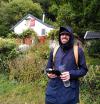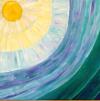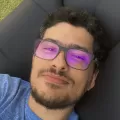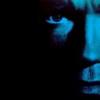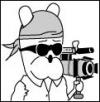Your probable score
?

The Look of Silence
2014
Documentary
1h 43m
A family that survives the genocide in Indonesia confronts the men who killed one of their brothers. (imdb)
Directed by:
Joshua OppenheimerThe Look of Silence
2014
Documentary
1h 43m
Your probable score
Avg Percentile 77.09% from 528 total ratings
Ratings & Reviews
(529)
Compact view
Compact view
Show
Sort
Rated 14 Jun 2015
100
97th
A deeply moral, deeply cinematic The Emperor's Naked Army Marches On that, self-reflexively and self-critically, contemplates the power of images and film to spur social change. It's a film interested in collective memory (and collective trauma), how narratives of the past (and the glissandos and silences in those narratives) serve as the infrastructure of power, and the role of film in providing a new, hopeful, just collective memory.
Rated 14 Jun 2015
Rated 19 Mar 2016
90
96th
Less of a highwire act than The Act of Killing but it's just as compelling and even more devastating. Using a more refined and straightforward approach, the film shines searing light on a nation's buried trauma and collective guilt and does so with moral complexity and incisive sociological insight.
Rated 19 Mar 2016
Rated 29 Feb 2016
80
86th
This film is a warning. It can take less than we think. That is, for genocidical forces to emerge and have its way throughout a society. Seeing the killers gleefully speak of their massacres is shocking. There was no attention, if I recall correctly, on how this arose amidst the containment politics that was US foreign policy in the cold war, and from which calculative regimes emerged and evil or dehumanization cascaded downward, constituting in effect the only true domino effect.
Rated 29 Feb 2016
Rated 08 Jan 2016
90
92nd
The Look of Silence approaches events from the perspective of a victim's family as they attempt to examine the psyches of the killers. In The Act of Killing, this was the objective of the filmmaker, but seeing this process played out through the eyes of someone who is so deeply affected by what happened lends an equally unique depth to the film. Intense silences loom over confrontations, capturing that intangible weight of a strained relationship like nothing I've seen before.
Rated 08 Jan 2016
Rated 06 Jul 2016
87
86th
The ability and will of humanity to repress is horrifying and astonishing alike.
Rated 06 Jul 2016
Rated 08 Apr 2016
77
81st
As a follow-up to its predecessor, it is solid and laudable for giving voice to silenced victims, but as a film on its own, it stands slightly lower.
Rated 08 Apr 2016
Rated 13 Mar 2016
64
62nd
This lacks the novelty and conceptual hook of The Act of Killing, and is consequently an overall less compelling film, but it's still a strong documentary just the same. The focus on the victims justifies it a worthwhile endeavor, even if the series of similar confrontations do get sort of repetitive after a while. Fortunately Oppenheimer also manages to capture some indelible imagery along the way. He's certainly a very talented filmmaker, but i hope he finds a fresh subject next time.
Rated 13 Mar 2016
Rated 21 Feb 2016
80
92nd
Distressing documentary on the passage of time and the repression of repression.
Rated 21 Feb 2016
Rated 18 Feb 2016
90
94th
Even more powerful than the first part, as now it's much more personal. Excellent directing too.
Rated 18 Feb 2016
Rated 29 Oct 2015
85
92nd
I didn't understand the meaning of this film's title until about half way through when the silence in one of the confrontations blew me away in it's intensity. This is an incredible documentary that needs to be seen by everyone.
Rated 29 Oct 2015
Rated 27 Sep 2015
80
79th
Reminded me of "Emperor's Naked Army Marches On" in the sense that it tries to excavate a repressed reality in a cinematic way. Through the seemingly passive and questioning attitude of the protagonist the audience has a socratic experience if not the killers. The static and silent moments of reflection between the interviews give the movie a meditative atmosphere too. Oppenheimer does a great job by confronting such a brutal case head-on and sincerely. One of the best political documentaries.
Rated 27 Sep 2015
Rated 14 Mar 2015
100
99th
Joshua Oppenheimer's second film is another triumph, and despite treading the same content it's a completely different, entirely bold movie. Adi makes his living determining eye prescriptions for villagers, a metaphor so vibrant and challenging it could only be real life. The craft on display is unforgettable; the film shifts seamlessly from intense encounters to contemplative sequences of normal life utterly heartbreaking in their silence. The tragedy never escapes a single moment of life here.
Rated 14 Mar 2015
Rated 14 Nov 2014
85
89th
Superior to Act of Killing in most ways, The Look of Silence confronts instead of stages. And manages to provide a both more complex and heart-rending take on the consequences of the Indonesian genocide.
Rated 14 Nov 2014
Rated 09 Sep 2014
90
81st
Joshua Oppenheimer's stunning followup to last year's The Act of Killing is just as mind-blowing in its absurdity, yet more emotionally stirring because of its more personal look at the horrors caused by the killings conducted in Indonesia in the 1960's. While the previous film was a three hour epic with a wide scale look at the murders, The Look of Silence follows one family that still has to deal with the loss of a family member while living amongst the perpetrators.
Rated 09 Sep 2014
Rated 02 Dec 2024
83
83rd
I was a slightly worried at first that this would come off as merely leftovers from the excellent The Act of Killing, but thankfully, that's not the case. Joshua Oppenheimer takes a similar approach behind the camera, but what sets The Look of Silence apart is the addition of Adi as a sort of protagonist, who takes on a far more active voice in the doc and brings a welcome dose of confrontation to the interviews with these genocidal lunatics.
Rated 02 Dec 2024
Rated 31 Oct 2023
100
99th
Former leader of the village death squad: "Some killed so many people that they've have gone mad. A man climbed a palm tree, every morning, to call for prayer. Killed too many people. There is only one way to avoid it. Drink the blood or go crazy. But if you drink blood, you can do anything."
Rated 31 Oct 2023
Rated 01 Jul 2023
70
47th
This film is important as a historical document. However, that doesn't mean I particularly enjoyed it. I was put off by the traditionalist style of documentary filmmaking. I think a lot of the sequences about the family could have been shorter, or extra's and not part of the main film. The main part of the film are the interviews with the murderers, which are interesting and shocking. But it obviously isn't pleasant material and it also makes the film quite frustrating to watch.
Rated 01 Jul 2023
Rated 21 May 2023
80
69th
Not really a criticism of the film, but the guy is a bad interviewer, he just immediately gets these people on the defensive and causes them to clam up and not want to talk. He certainly does not ingratiate himself, or catch them off guard while they’re distracted with getting their prescriptions, as I was led to believe he would. (Which is kinda what Oppenheimer did with the previous film, making it a more interesting narrative.) Still a great piece of documentary filmmaking though
Rated 21 May 2023
Rated 22 Jan 2023
80
88th
Solid companion piece to The Act of Killing. Didn’t hit me as quite as hard this time around, but still very well made and has weight to it
Rated 22 Jan 2023
Rated 24 Feb 2021
83
95th
somehow better than the first
Rated 24 Feb 2021
Rated 20 Feb 2021
40
10th
I'm not an Indonesian and I found this lacking in substance. It could be easily edited and compressed to like 25 min. War is never nice and domestic ones are the worst. I don't know the country's history enough to judge who was right in this conflict but I've seen enough of this movie to judge it's not even trying to be impartial. And no, stating that communists are godless and immoral is not propaganda. If they were God-fearing, moral people, they wouldn't have been communists.
Rated 20 Feb 2021
Rated 16 Oct 2020
87
95th
The shift from reenactment of war crimes to confrontation with their enactors results in one of the most palpably disarming depictions of Evil put to film. A deeply harrowing examination of the cyclicality of violence and the struggles to reconcile its place in history, but also a celebration of the bravery of those who forge onward in the face of resistance.
Rated 16 Oct 2020
Rated 15 Feb 2020
98
95th
Extraordinarily painful documentary is as much a portrait of Rukin's brave objectivity as interviewer as it is in confronting the death squad responsible for vile genocide. Stunning in its unadorned method of presenting testimony from the perpetrators, including casually shocking confessions of vile (and chillingly state sanctioned) behaviour. Manages a thorough overview of the macros and micros of the situation in a compact running time - a credit to both Oppenheimer and Rukin.
Rated 15 Feb 2020
Rated 14 Dec 2019
87
81st
Beautifully balances the forever-wounded perspective of the grieving with the filmmaker's artistic exploration of theme. The subjects, in the many possible definitions of these words: perspective, responsibility, vulnerability, justice, and (ultimately) human psychology.
Rated 14 Dec 2019
Rated 19 Oct 2018
82
83rd
What in the actual f is wrong with these people.
Rated 19 Oct 2018
Rated 16 Jul 2017
86
90th
A nearly unbelievable, foreboding exploration of various concerns, such as humanity taking accountability for evil.
Rated 16 Jul 2017
Rated 30 Jun 2017
80
84th
This documentary amazed me with its simplicity and power. The way in which it confronts, the way in which Adi's patience is tested but never shattered, and the unassuming nature of the interviews all added to the astonishment I felt throughout. Impressive and humbling.
Rated 30 Jun 2017
Rated 04 May 2017
71
82nd
Not quite as jaw-dropping as The Act Of Killing but a useful counterpart to it in its focus on a single victim.
Rated 04 May 2017
Rated 21 Feb 2017
79
83rd
Endonezya'daki 1 milyon komünistin vahşice öldirilmesini işleyen yapım. Bunu işlerken propoganda yapıcı yada ajite edici, eyleme geçirici şeyler yapmayan sadece olayları mağdurların gözünden değil katillerin gözünden anlatan bir yapım. Çarpıcı ve çoğunlukla rahatsız edici. Bir siyasi hegemonyayı yansıtmak yerine İnsanlık dersi veriyor.
Rated 21 Feb 2017
Rated 01 Aug 2016
100
94th
Not as overtly artistic as The Act of Killing but still brilliant in its use of metaphor and packs a greater punch than the earlier film.
Rated 01 Aug 2016
Rated 18 Jul 2016
90
92nd
Brilliant use of a visual metaphor in selecting Adi, the optician, searching for a moment of sharpness through many sets of eyes to understand why his brothers life was taken. In response he receives a ballet of deflection from the culprits or their families, adding little clarity to the rational behind the local's involvement in the genocide of their own. Adi's fragile father's own recollection matches the nations memory of these events. Yet, what is there to do now, but reflect in silence?
Rated 18 Jul 2016
Rated 12 May 2016
80
90th
Much like The Act of Killing, this is an immensely powerful and unnerving movie to watch. I've just never seen people talk so frankly about mass murder. It's a very simplistic film - it doesn't pander to the audience, it just lets these moments of confrontation play out. As the title suggests, it's not afraid of extended sequences of silence. I don't have much else to say about it - it's just a fascinating and terrifying insight into a different world.
Rated 12 May 2016
Rated 29 Apr 2016
92
93rd
Beautiful photograph. The looks on Adi's face urge for justice. I couldn't help but cry and feel ashamed of being human. Also, Oppenheimer's courage to go deep into such a dangerous and painfull subject is remarkable.
A very sad masterpiece.
Rated 29 Apr 2016
Rated 03 Apr 2016
70
72nd
It lacks the the vivid fabulistic impact of Act of Killing in its way of telling a very straightforward docudrama by one man interviewing people involved in his brother's death -- one of them is his uncle, two of them admit they drank blood to avoid losing their minds (!). These images -- the man seeing two guys describing how they killed Ramli -- are so powerful that Joshua has little to do with them. History is unfair -- killers as celebrities, victims in complete state of silence and sorrow.
Rated 03 Apr 2016
Rated 04 Mar 2016
90
85th
In seinem ersten Film liess Joshua Oppenheimer eine Bande von berufsmässigen Mördern ihre Taten nachspielen. Diesmal berichten die Opfer des Genozids in Indonesien während der 60er Jahre. Die Dreharbeiten fanden direkt im Anschluss an die Veröffentlichung von The Act Of Killing statt... mehr auf cinegeek.de
Rated 04 Mar 2016
Rated 18 Feb 2016
70
96th
It's hard, and you do realize sometimes it's best that the past remains the past. Old wounds gets so easily opened. Especially when there's created a feeling of being heroes for slaughtering a million "communists" on behalf of the government when they deep down know they're simply just killers. You feel for all parties, not just the family of the victims. A humane confrontation.
Rated 18 Feb 2016
Rated 14 Feb 2016
92
93rd
The quiet determination that Adi carries into his conversations about the genocide that saw his older brother executed stands as a call for justice in the face of what almost seems unbelievable injustice. Adi has no means to bring those responsible to justice, only his doggedness to expose and confront the evil all around him. That no one, neither victim nor perpetrator, has any interest in pursuing justice, suggests the depth to which the genocidal wickedness has done its work.
Rated 14 Feb 2016
Rated 05 Feb 2016
88
89th
Confronting is the key word here: seeing the brother of one of the genocide's victims confront more than one of the men who may've killed him is really startling to watch. The interviewees tell two different stories, one with their words, the other with their face, and Adi's stoicism during this is very respectable -- all of which is superbly photographed to put focus on these very revealing faces.
Rated 05 Feb 2016
Rated 31 Jan 2016
87
91st
A more straightforward look at the same atrocities as compared to Act of Killing, but no less powerful. The main character's stoicism is monumental. It is gotcha-journalism at its very best.
Rated 31 Jan 2016
Rated 26 Jan 2016
88
95th
Near flawlessly made as both a documentary film and a piece of journalistic activism. More than that there's an almost unbelievable optimism that shines through in the face of absolutely horrific reality. Oppenheimer defiantly believes in a process towards some kind of cultural reconciliation and hope for a better world. Films simply don't get more intense or relevant than this.
Rated 26 Jan 2016
Rated 17 Jan 2016
80
80th
Not as shocking or inventive as The Act of Killing, as it ostensibly retreads the same ground, but in a much more straight-forward and direct way. Still a hard pill to swallow though, and I would imagine doubly so for those who haven't seen the first film, or are unaware of the horrors that both films chronicle.
Rated 17 Jan 2016
Rated 14 Jan 2016
5
73rd
reading some of the critiques of these films (see slant's james lattimer for one of the most eloquent), you'd think a portion of the critical community had never encountered a film by herzog, morris, greene or panahi before. as greene puts it in his review for BFI, "the distorted mirror can sometimes show our truest face," and that strikes me as particularly true in this case, because the atrocity and subsequent repression/distortion were both inspired by and reminiscent of cinema themselves.
Rated 14 Jan 2016
Rated 06 Jan 2016
80
37th
Very conflicted on how to feel about this film. On the one hand, many of these interview sequences are among the most terrifying, unnerving things I've seen this year. However, it feels like Oppenheimer doesn't really go far enough in making any sort of statement, any kind of grand stand about this cruelty that occurred. I'm not sure if all of this is enough, I mean. It feels empty.
Rated 06 Jan 2016
Rated 02 Jan 2016
69
62nd
Extremely provocative and an intense documentary as we follow Adi's brave and personal journey to meet the guys responsible for his brothers death. A shocking research into the genocide in Indonesia where the perpetrators show no remorse and disclaim all responsibility, and decades later the same people are still in power ruling by fear.
Rated 02 Jan 2016
Rated 30 Dec 2015
60
31st
Art of Killing was remarkable. This film may be important for Indonesian citizens, but it seemed unnecessary from my standpoint. A family member of one of the victims interviews and confronts several of the murderers. The interviews were about what I expected. Hopefully, it helped the family of victims and the country as a whole. bps77
Rated 30 Dec 2015
Rated 15 Nov 2015
80
86th
A powerfully dramatic doc. The guy interviewing the monsters responsible for killing his brothers, who represents our disbelief and disgust, gives the audience a strong hook. Cudos to him for being able to go through with it.
Rated 15 Nov 2015
Rated 26 Oct 2015
85
91st
Act of Killing is the greater, groundbreaking work but this is the straight-forward alternative. Look of Silence lacks the mind-bending exposure to the killers but maintains excellence with an easier-to-comprehend story.
Rated 26 Oct 2015
Rated 22 Aug 2015
85
72nd
Joshua Oppenheimer's follow-up to THE ACT OF KILLING, like its predecessor, can be heavy-going, but it provides many privileged--and heartbreaking--moments. It deals with an optometrist whose brother was killed in the Indonesian massacres of the 60s, who confronts his killers, looking for answers or at least apologies, and instead finds just how unwilling even brash evildoers are to accept direct responsibility for their actions. It is perhaps the more human and more moving of the two films.
Rated 22 Aug 2015
Rated 24 Jun 2015
79
85th
Dealing with a genocide swept under the rug, The Look of Silence is an important and groundbreaking film, in that Oppenheimer approached the people responsible whilst they were still in power. The parts focusing on the victims & families were less engaging than the interviews with these tyrants, but overall an equally fascinating and infuriating watch.
Rated 24 Jun 2015
Rated 27 Apr 2015
98
96th
By it's nature, it's not as interesting as the original but it is somehow far more aggravating and harrowing. The type of movie that will make you feel very ill after watching.
Rated 27 Apr 2015
Cast & Info
Directed by:
Joshua OppenheimerCollections
Loading ...
Similar Titles
Loading ...
Statistics
Loading ...
Trailer
Loading ...
PSI
?






